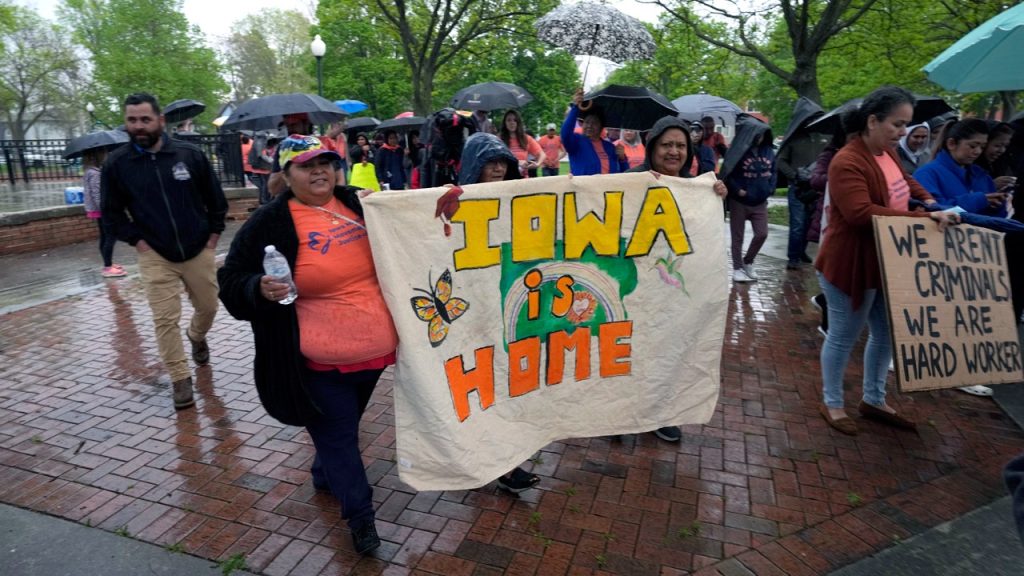The U.S. Department of Justice has notified Iowa officials of plans to sue the state over a new law that makes it a crime for individuals to be in Iowa if they have previously been denied admission to the U.S. The DOJ argues that this law interferes with the federal government’s authority to enforce immigration laws, and has already filed a similar lawsuit against Texas for a comparable measure. The Iowa Governor Kim Reynolds and Attorney General Brenna Bird have been informed that unless the state agrees not to enforce the law by May 7, legal action will be taken. However, Bird has indicated that Iowa is unlikely to agree to the federal terms.
The Iowa law, set to go into effect on July 1, enables local authorities to arrest certain migrants and enforce immigration laws. Under this law, criminal charges could be brought against individuals with outstanding deportation orders or who have previously been removed from or denied admission to the U.S. Those taken into custody would have the option to agree to leave the U.S. according to a judge’s order, or face prosecution. This law has sparked fear and anxiety within Iowa’s immigrant communities, prompting protests in Des Moines and other cities. The Justice Department has deemed the Iowa law unconstitutional, claiming that it effectively establishes a separate state immigration scheme.
The Iowa law raises questions similar to those seen in the Texas case, where the state’s law is currently on hold due to a court challenge from the Justice Department. Legal experts and law enforcement officials have stated that immigration law enforcement has historically been the responsibility of federal authorities. The potential lawsuit against Iowa comes as part of a broader debate over immigration policy in the United States, with Republicans accusing President Joe Biden of failing to enforce existing federal laws. Governor Reynolds has defended the law, stating that it was necessary due to the perceived lack of action on immigration from the current administration.
The situation in Iowa highlights the ongoing tensions surrounding immigration policy in the United States, with state laws often conflicting with federal mandates. The federal government’s challenge to the Iowa law underscores the complex legal issues at play when it comes to immigration enforcement. The divergent views on how best to manage immigration have led to a contentious political debate, with different states taking varying approaches to addressing the issue. The implications of the potential lawsuit against Iowa will be closely watched by advocates on both sides of the immigration debate, as it could set a precedent for how states can legislate on matters traditionally within federal jurisdiction.
As Iowa officials and the Justice Department face off over the state’s immigration law, the debate surrounding immigration policy in the United States continues to intensify. The conflict between state and federal authorities highlights the challenges of enforcing immigration laws in a system where responsibilities are divided between different levels of government. The outcome of the potential lawsuit against Iowa will have significant implications for how states navigate immigration policy moving forward, and could shape the broader national conversation on this contentious issue. The tensions surrounding immigration enforcement are likely to persist as political parties and stakeholders grapple with competing views on how best to address the complex and often controversial issue of immigration in America.


